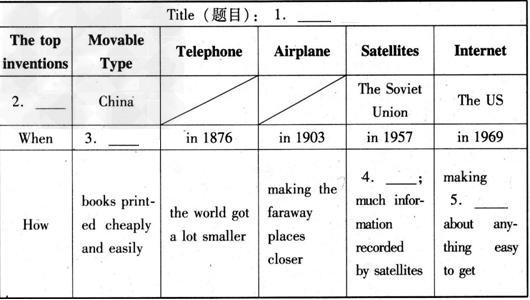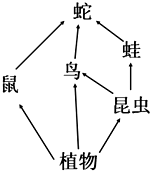阅读下面短文,根据短文内容,完成表格中所缺的信息。
What makes the world become smaller? Some inventions. It began in the 11th century, but it has
developed greatly in the last century. Let's take a look at the five top inventions.
Movable Type (活字印刷): By using Movable Type, books could be printed cheaply and easily.
Bi Sheng invented Movable Type in China in the 11th century.
Telephone: The inventor Alexander Graham Bell made the first telephone call in 1876. "Mr Watson,
come here. I want you," he said to his assistant ( 助手) over the phone line. And with those famous
words, the world was about to get much smaller.
Airplane: The Wright brothers made the first powered flight in 1903. Air travel has made the faraway
places suddenly become a lot closer.
Satellites (卫星) : The Soviet Union sent up the world's first satellite in 1957. This began the Space
Age. Satellites have helped scientists study the earth. Much of our knowledge of the world has come
from the information recorded by satellites.
Internet (互联网) : When the Internet was created in 1969, only a few people knew about it.
But more than 650 million people in the world use it now. The Internet has made information about
anything easy to get.



